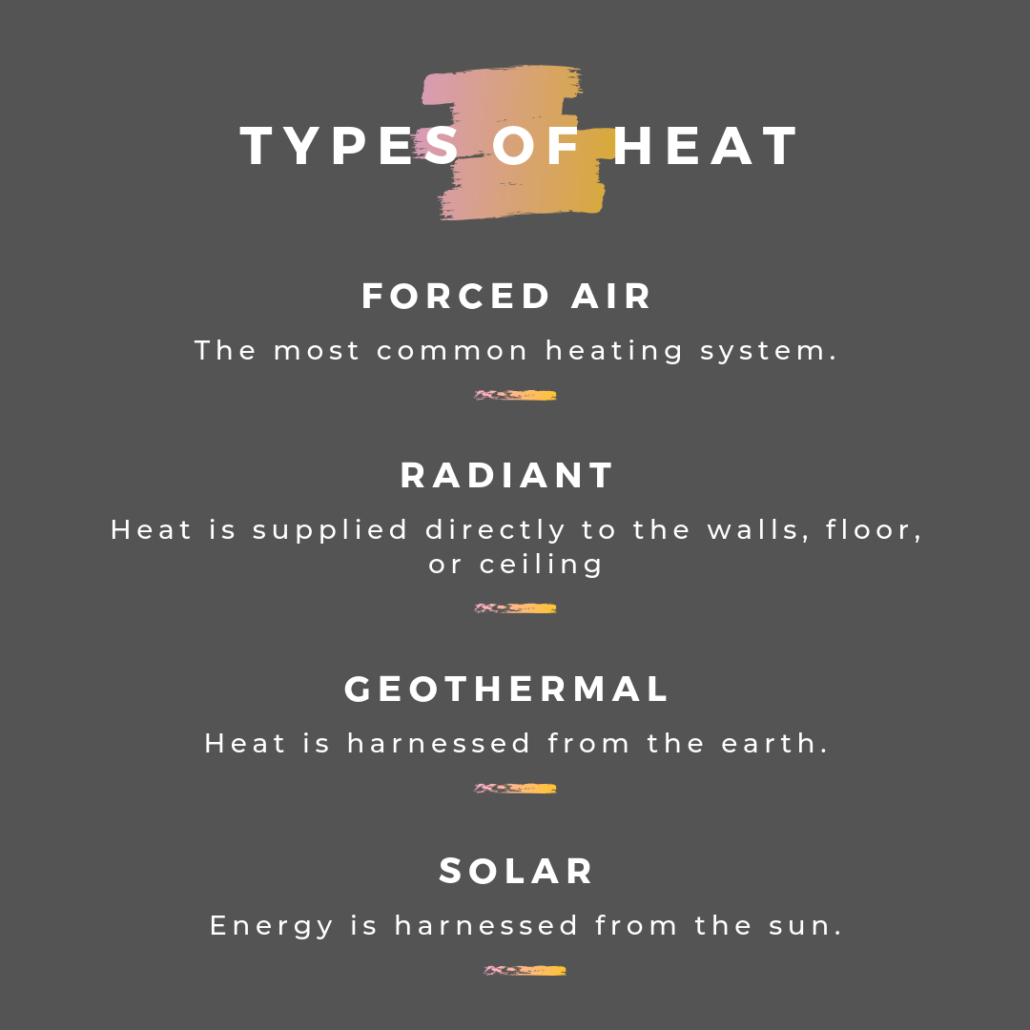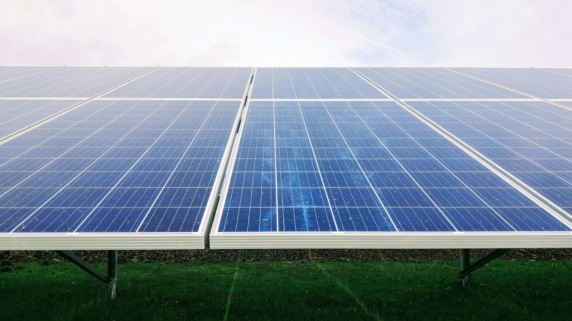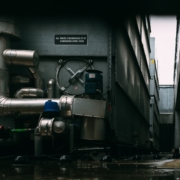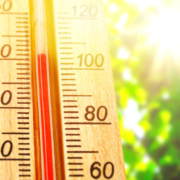All About Heating
Heating is one of those things that—like your car or dishwasher—you don’t think twice about until it stops working. But anyone looking to buy (or renovate) a house should have a general understanding of the different heating systems. This knowledge can save you money (and save you from shivering, too).
Heating Questions to Ask
The house you’re considering might look amazing and feel like home, but before you buy, here are some key heating questions to ask:
- What type of heating does the house have?
- How energy efficient is it?
- How old is the system?
- When will it need to be replaced?
- When’s the last time it was serviced?
- How often has it been looked at?
A yearly HVAC check is standard, particularly if it’s still under warranty. - Does it have A/C?
Even though this doesn’t pertain to heating, it’s a good question to ask and oftentimes, the systems are connected.
Types of Heating

Forced Air
This is the most common heating source. A furnace (typically powered by natural gas or oil) moves heat through ducts and vents to warm a house. On average, furnaces last 15-20 years and can cost at least $3k-$4k to replace. Older systems will lead to higher energy bills; updating to a newer model can save you a few hundred bucks a year—and lead to the system paying for itself several years down the road.
Quick note: if a house doesn’t have A/C but has forced air, it’s pretty easy (and cheap) to add it on.
Radiant
With radiant heating, metal panels located in floors, walls, or ceilings are heated and transfer that heat to the home. It’s found in older homes, and can lead to issues with the surfaces that come into contact with the panels (such as cracks in drywall). In very old homes (think 1950s) radiant heat can be dangerous. Radiant heat holds heat well, but isn’t the safest heating option.
Geothermal

Just a few feet beneath the earth’s surface, the temperature stabilizes at 55°F. Geothermal heat pumps are installed underground to access this temperature. It’s less expensive to heat or cool a home from 55°F than if it’s 25°F or 90°F outside. The pumps require lots of space and digging up your yard, but the results are awesome. These pumps help with heating, cooling, and water temperature, and can cut your energy bills by up to 80%.
Geothermal heating is a highly energy efficient way to heat a home. While expensive up front, this method pays for itself within several years.
Solar
Some might not like the look of solar panels, but who can say no to saving money and helping the environment? Solar panels harness energy from the sun which, in turn, heats your home. Savings depend on the area, but even in cloudier climates solar panels can still cut energy costs. As an added bonus, energy companies will usually buy additional power you make back from you.
Buying a home is one of the biggest investments that most ever make. You want to be well-informed before closing, and knowing your future home’s heating is an essential step. Whether your next home is in sunny Hawaii or blizzarding British Columbia, find (or sell) your home with RealtyHive!
- What House to Buy, Based On Your Zodiac Sign - August 28, 2020
- 6 Misunderstood Things About Buying & Selling Houses - August 23, 2020
- 5 Things to Know About 401K Real Estate Investing - August 17, 2020






Trackbacks & Pingbacks
[…] let it hold you back! Forced air is the most common form of home heating, and if your house has this, you’re in luck. You can add A/C with relative ease if there are […]
[…] underground, geothermal heat pumps (GHPs) are even more expensive than solar panels — usually at least $20,000, though rebates can […]
[…] all that money in a year, consider yourself lucky, and keep saving. Having to suddenly replace your home’s heating or deal with a burst pipe is a lot less intimidating when you’ve put the money away ahead of […]
[…] — problems you wouldn’t have had to deal with, had you sold in the fall. Burst pipes, broken furnaces — no one wants to deal with […]
[…] less than $15) and apply them to your windows in fall. Insulating your windows means your heating systems don’t have to work as hard to […]
[…] check your thermostat batteries, and schedule an HVAC check. Have a professional look at your home’s heating once a year — preferably well before you need to start using it — to make sure everything’s […]
[…] your home’s heating and the weather, we only think twice about a bathroom when something’s off. When you’re getting […]
Leave a Reply
Want to join the discussion?Feel free to contribute!